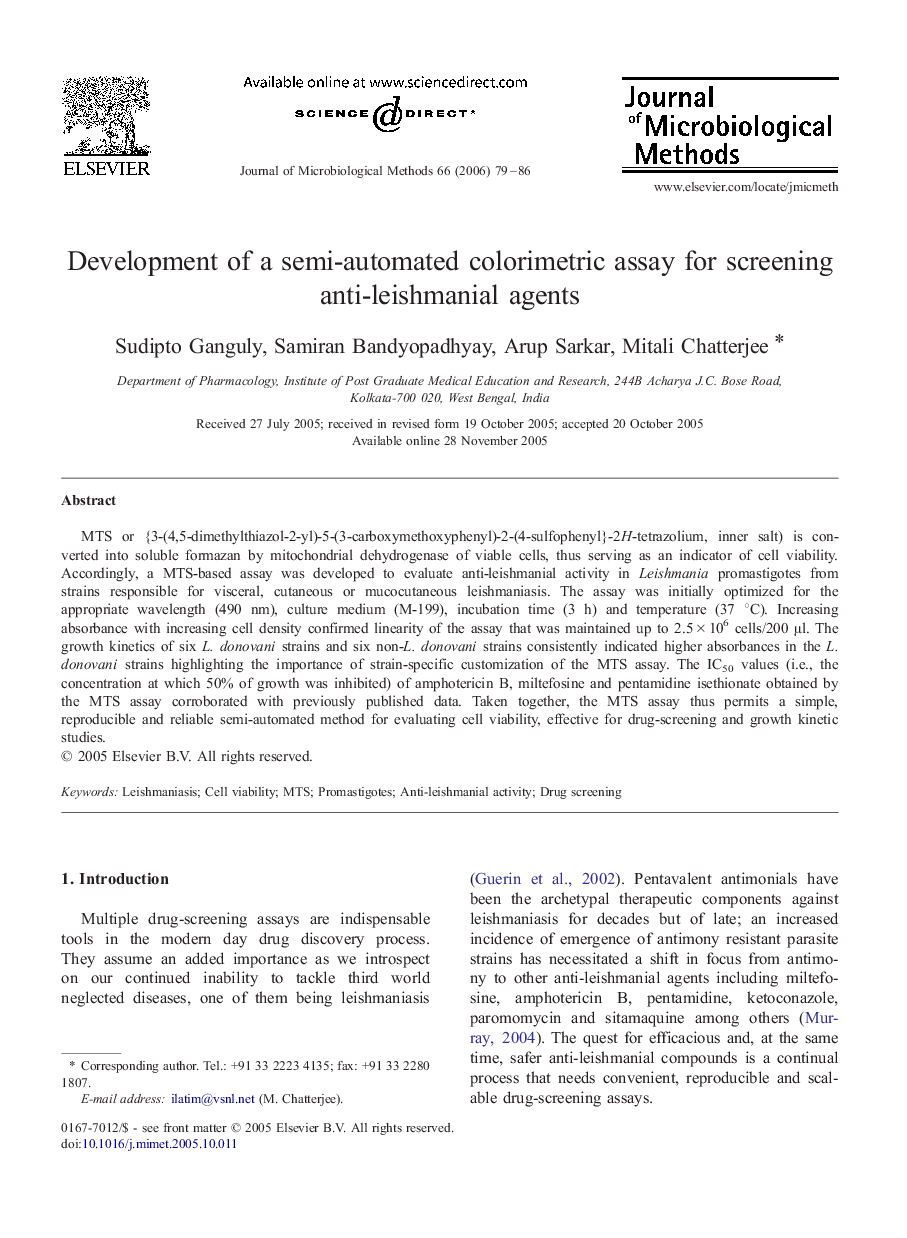| Article ID | Journal | Published Year | Pages | File Type |
|---|---|---|---|---|
| 2092079 | Journal of Microbiological Methods | 2006 | 8 Pages |
MTS or {3-(4,5-dimethylthiazol-2-yl)-5-(3-carboxymethoxyphenyl)-2-(4-sulfophenyl}-2H-tetrazolium, inner salt) is converted into soluble formazan by mitochondrial dehydrogenase of viable cells, thus serving as an indicator of cell viability. Accordingly, a MTS-based assay was developed to evaluate anti-leishmanial activity in Leishmania promastigotes from strains responsible for visceral, cutaneous or mucocutaneous leishmaniasis. The assay was initially optimized for the appropriate wavelength (490 nm), culture medium (M-199), incubation time (3 h) and temperature (37 °C). Increasing absorbance with increasing cell density confirmed linearity of the assay that was maintained up to 2.5 × 106 cells/200 μl. The growth kinetics of six L. donovani strains and six non-L. donovani strains consistently indicated higher absorbances in the L. donovani strains highlighting the importance of strain-specific customization of the MTS assay. The IC50 values (i.e., the concentration at which 50% of growth was inhibited) of amphotericin B, miltefosine and pentamidine isethionate obtained by the MTS assay corroborated with previously published data. Taken together, the MTS assay thus permits a simple, reproducible and reliable semi-automated method for evaluating cell viability, effective for drug-screening and growth kinetic studies.
